Groundbreaking Workshop on AI and Technology-Facilitated Gender-Based Violence at AWiM24
Trending
Wednesday April 16, 2025
Trending
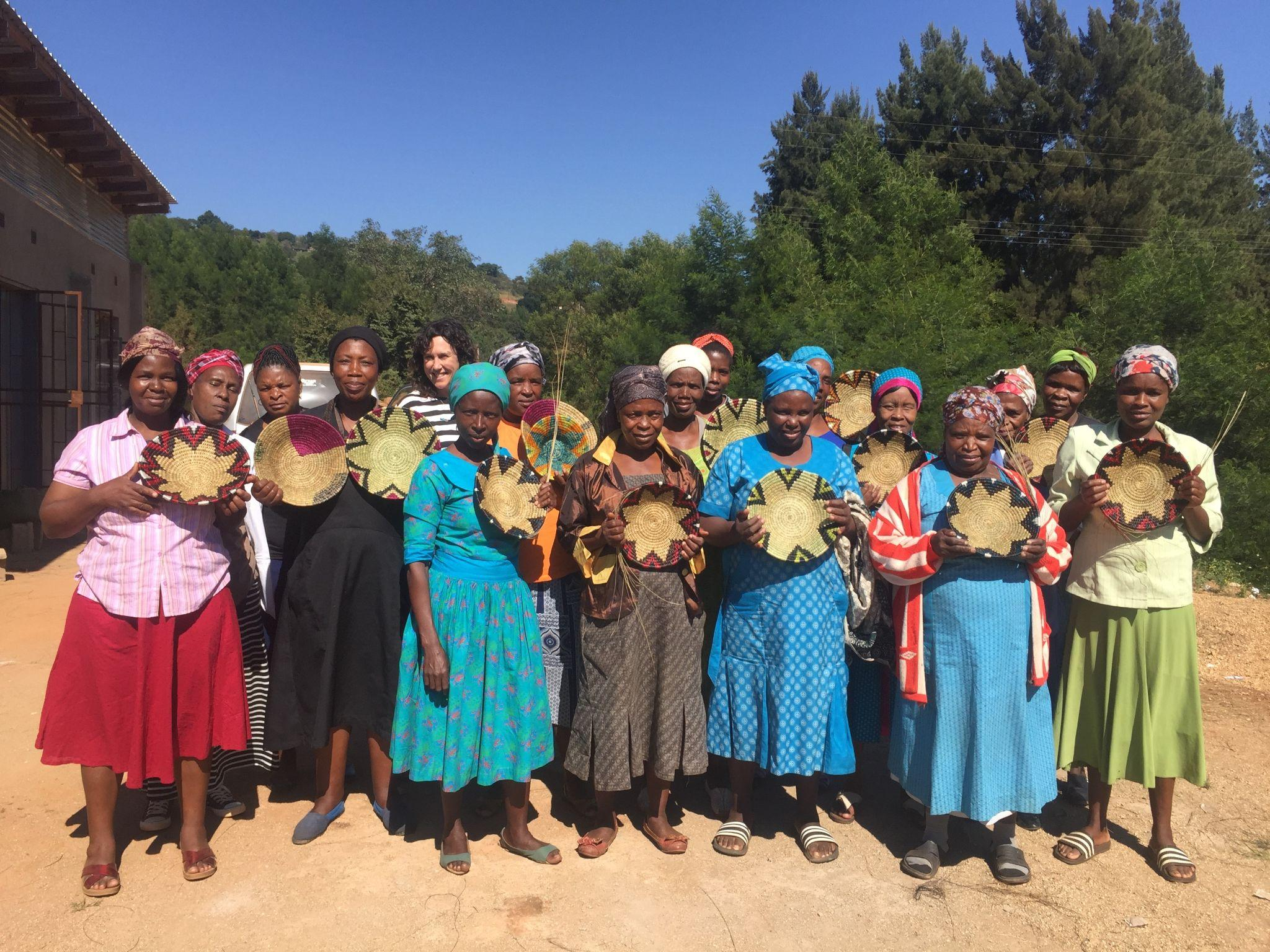
Photo Credit :Nokukhanya Musi – Aimienoho for AWiMNews
Theresa Mavuso, a 61-year-old grandmother with 10 children and 12 grandchildren, had her work cut out for her when her husband suddenly took off, leaving her with 10 young children.
Her husband, who was the sole breadwinner, lost his job as a security guard and then left the house under the pretense of going to look for employment but he never returned.
It was a difficult time for her, as she was only a school dropout who managed to make it to primary four, because her parents had no money to pay for her school fees. She had to get married at a young age.
Theresa’s husband was gone for 10 years, leaving her, an unemployed, stay-at-home mother and wife to fend for herself and her children.
Speaking about the difficulties faced by the family during that time she says, “It was a very tough time for me and my children. We had nothing. We could not even afford to buy the basics. There was no soap and sugar. It was a hopeless situation .”
Left with no means to provide for her family, and no jobs available, she turned to what she knew best; basket weaving. It is a skill that was taught to her by her mother as a child.
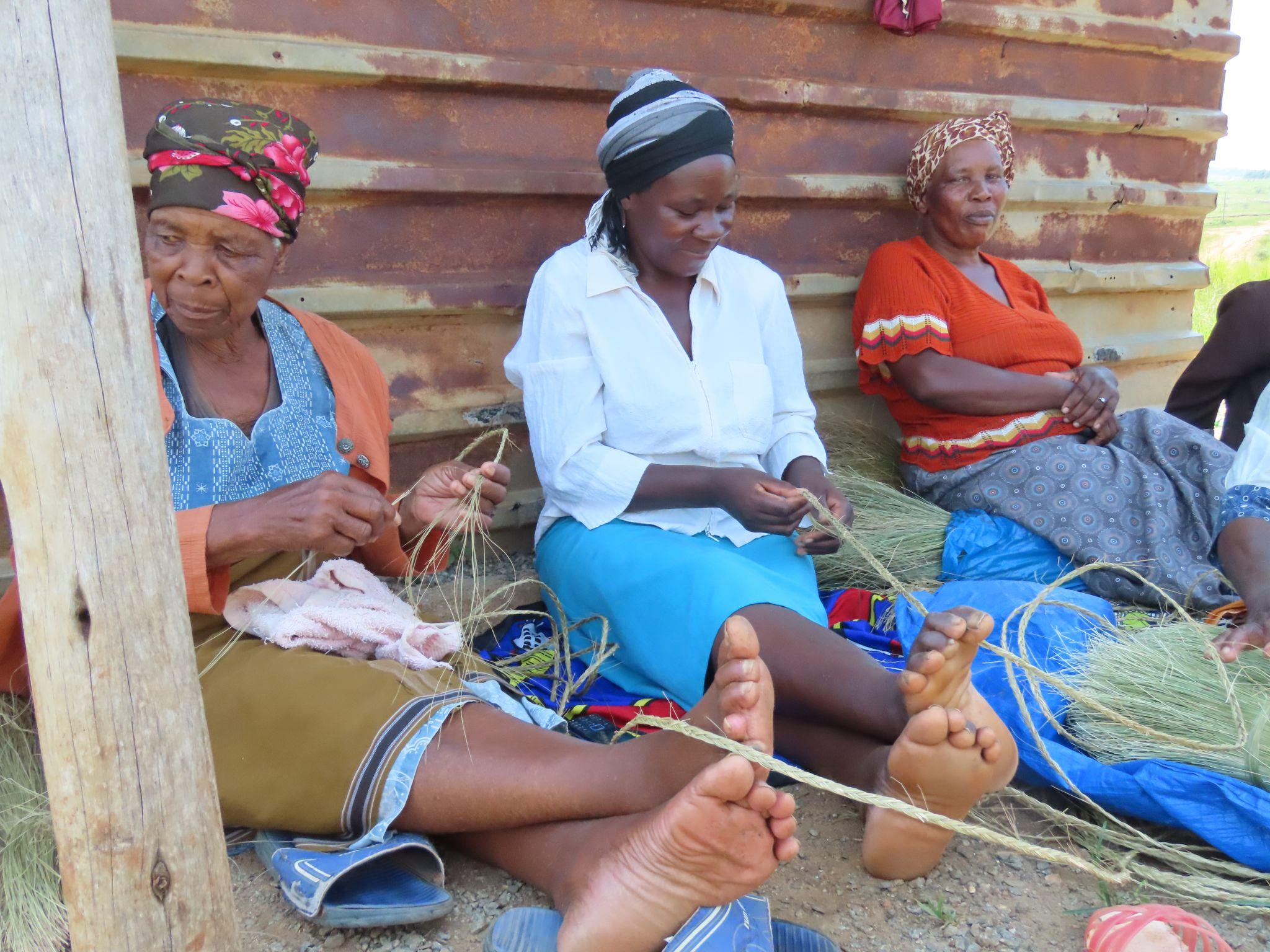
Photo Credit :Nokukhanya Musi – Aimienoho for AWiMNews
Despite the difficulties she faced as a single parent, Theresa never lost hope and would often trek up to the mountaintops with other women in her community to collect the grass needed for their baskets.
Eswatini women, particularly those in rural areas, have faced their own unique struggles. With an unemployment rate of 35% and limited access to secondary education for women, opportunities are scarce.
In a conversation with Mandlenkosi Dlamini, a Financial advisor, he explains that the informal sector had always been a major contributor to the economy of Eswatini “The informal sector provides both income and employment to many. However, the recent downturn in the formal economy has exacerbated the difficulties faced by these workers. Inflation, currency depreciation, and low consumer confidence have severely impacted their earnings.”
He mentions that it is crucial to consider targeted assistance for these micro and small businesses, perhaps in the form of tax breaks, affordable credit facilities, and skills training, to ensure that they can weather challenging periods and continue to play a significant role in the country’s economic recovery.
He addresses the importance of traditional crafts in Eswatini, saying, “besides the informal sector, we must also recognize the value of local craft, which not only embodies the rich cultural heritage of Eswatini but also provides an opportunity for economic growth’’
As an example, the sales of traditional baskets and weaving products generated over $1.2 million in revenue in 2019.The government and private sector must explore ways to promote these traditional arts and crafts, perhaps through marketing campaigns targeting tourists or subsidies for raw materials and equipment.”
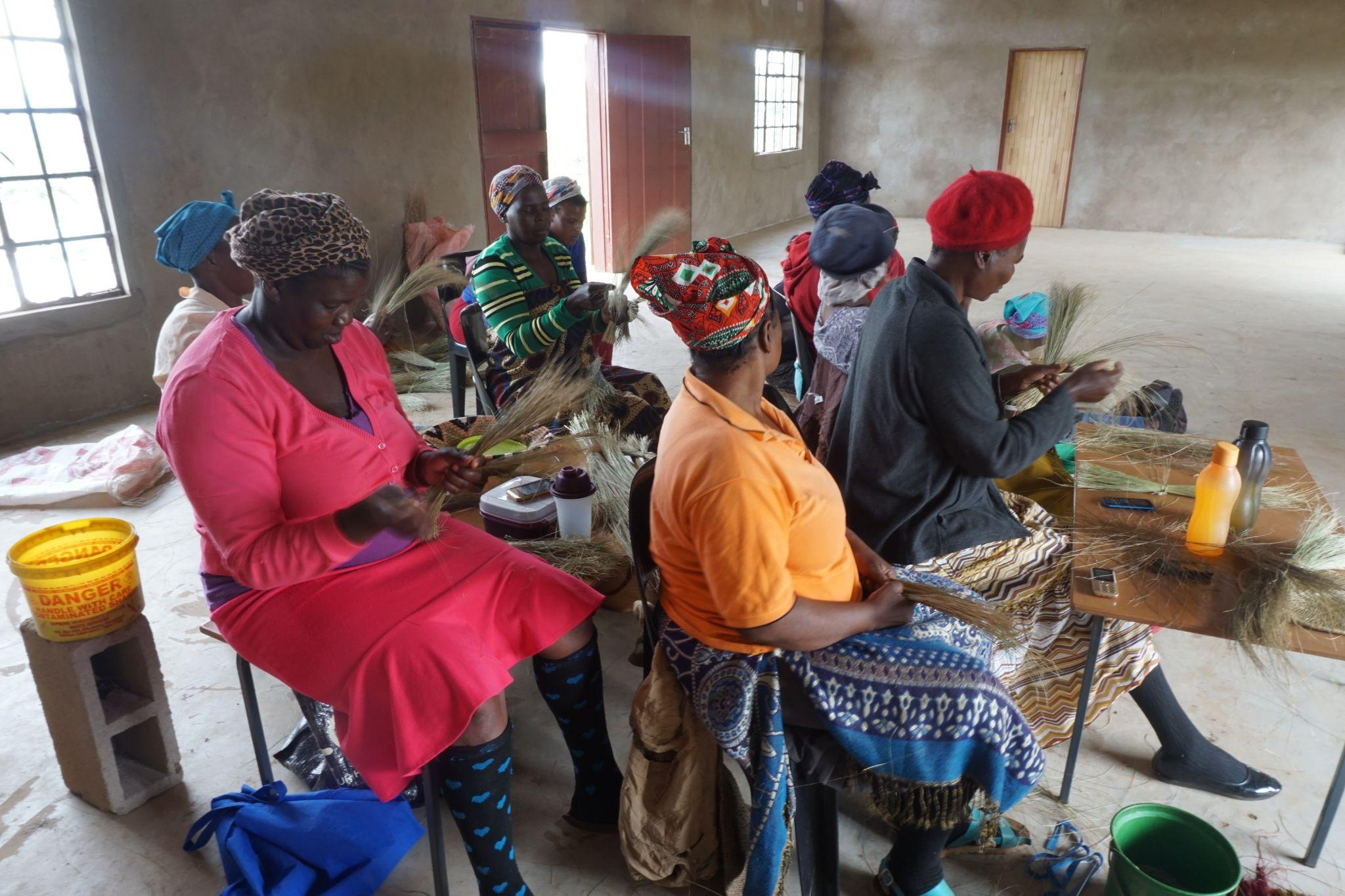
Photo Credit :Nokukhanya Musi – Aimienoho for AWiMNews
Moreover, he points out that the vital role of women in Eswatini’s economic landscape cannot be ignored.
He further said that recent data implies that women make up nearly half of the informal sector workforce and play a crucial role in household income generation. Efforts to support informal traders and promote traditional crafts must therefore include a gendered lens, ensuring that women have equal access to opportunities and resources. For instance, providing women with access to microfinance services and financial literacy training could significantly enhance their entrepreneurial potential
Today, Theresa is a shining example of the power of resilience and determination in the face of adversity.
Through the skill of weaving, Theresa was able to provide for herself and her children and also put them all through school.
A 2024 United Nations Development Programme (UNDP) report says the country has around 7 000 sex workers currently trading in towns and townships, due to poverty and unemployment.
According to the reports, young women involved in sex work were compelled by the basic need to enhance their livelihoods while others are school dropouts who resorted to the trade to earn a living.
Unlike many of the girls her age, Simangele chose not to turn to prostitution.
Instead, she opted to focus her energies towards refining her craft and launched a successful weaving business and as a result, she found a sustainable source of income and a renewed sense of purpose.
As her business grew, so did her confidence. Simangele found that her baskets, crafted with traditional techniques and infused with her own personal style,resonated with customers.
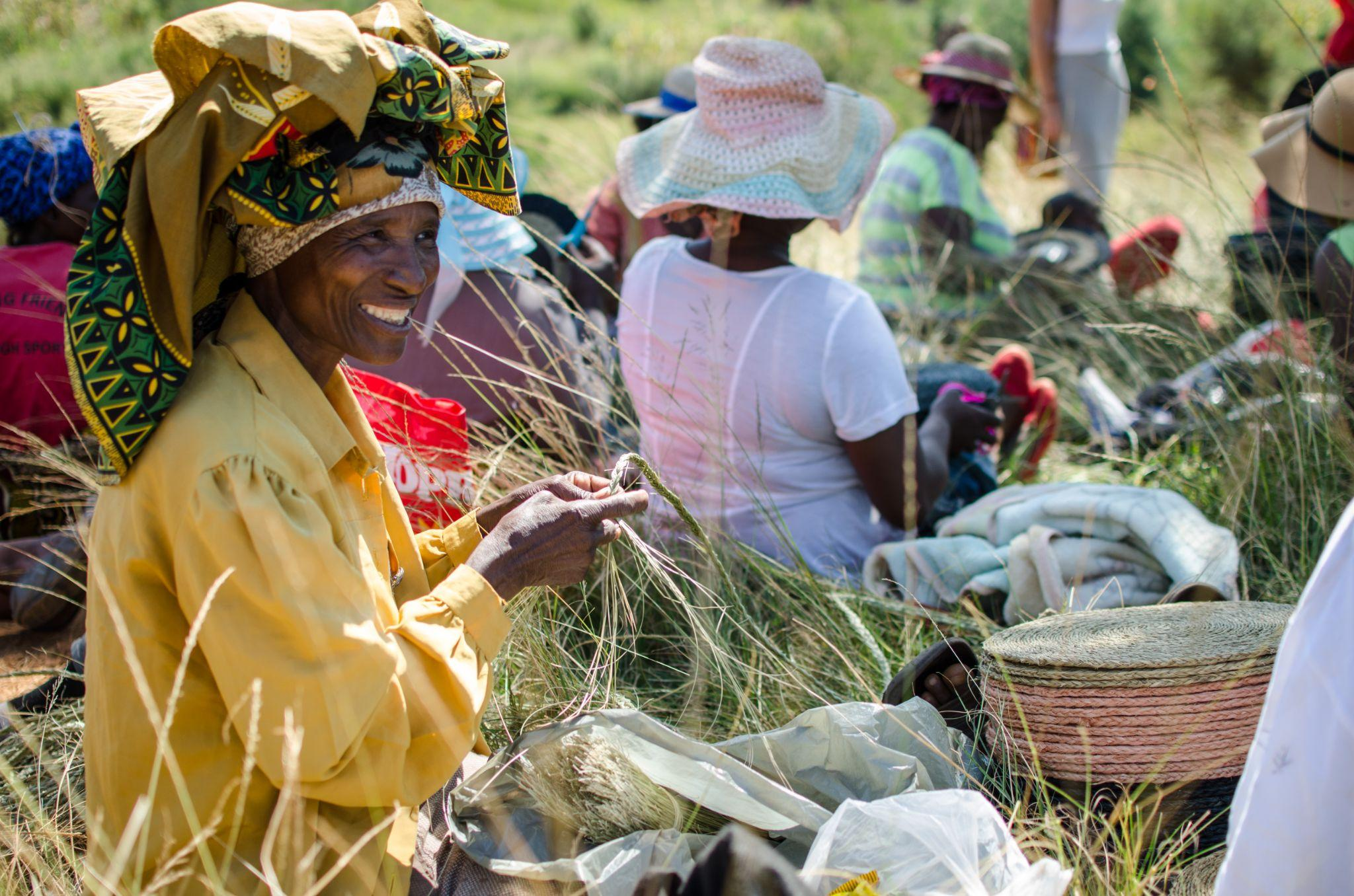
Photo Credit :Nokukhanya Musi – Aimienoho for AWiMNews
The stories of Theresa Mavuso, Simangele Mathonsi – Kunene and Zodwa Dlamini are just some of the hundreds of other stories that reveal the deeply entrenched issues such as teenage pregnancy, gender inequality, poverty, and the devastating impact of HIV/AIDS are among the many issues plaguing Eswatini’s rural communities
Amidst the pervasive poverty and high HIV/AIDS rates in Eswatini, one of the most devastating effects has been the increasing number of vulnerable children.
With 27% of the population HIV positive, poverty-stricken families and child-headed households have been left struggling to survive
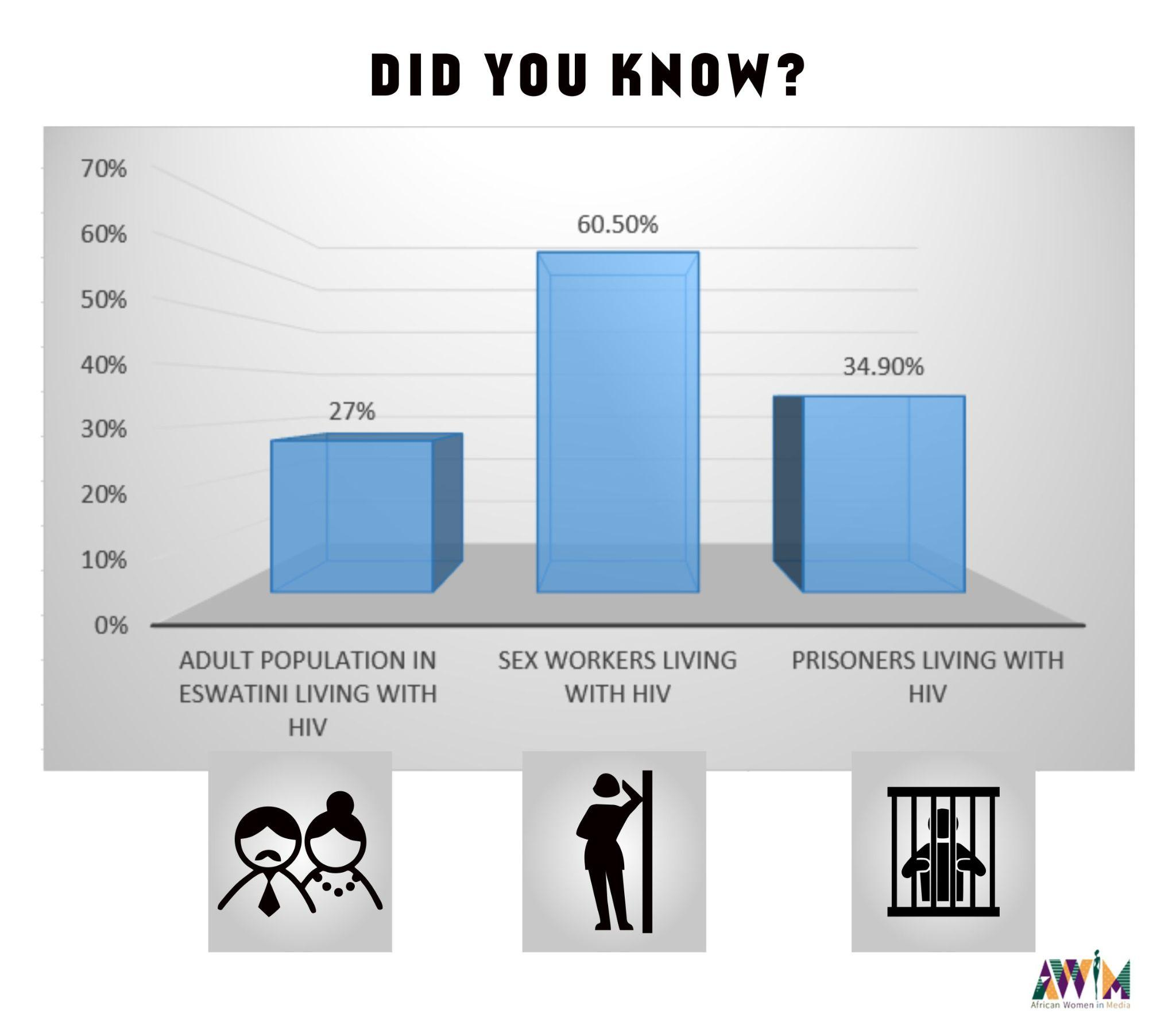
Yet, in the face of these insurmountable odds, rural women are proving their resilience by weaving their traditional craft into a powerful tool for empowerment and progress.
They are not only preserving their cultural heritage but also building a better future for their families and communities.
By creating beautiful and intricate woven products, Women like Therese are able to earn a steady income and contribute to the local economy.
Beyond economic benefits, weaving has also become a symbol of hope and a means of preserving cultural identity for Eswatini women.
The vibrant colors and intricate patterns of their baskets, mats, and other woven products are a source of pride and a celebration of their unique heritage.
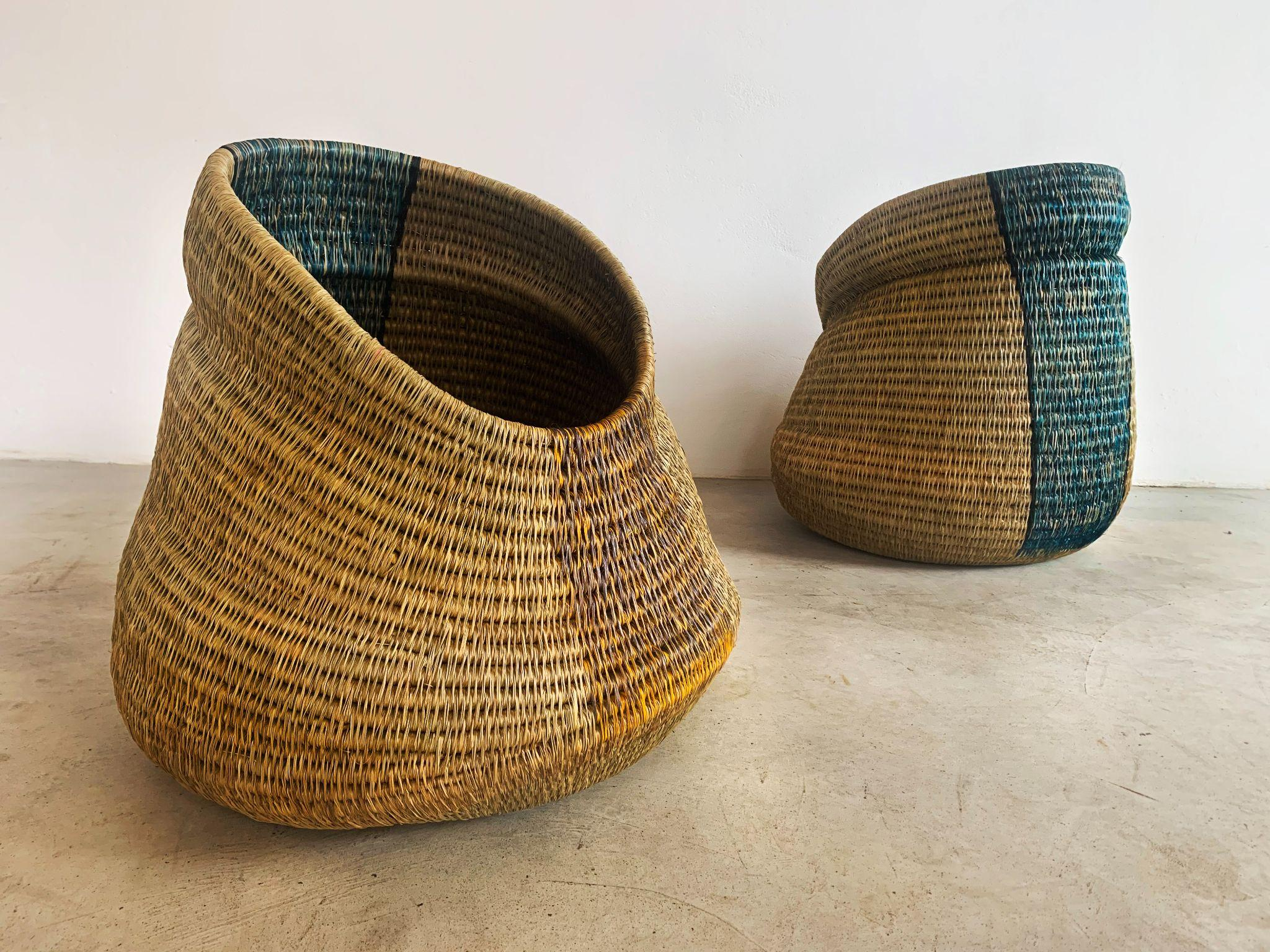
Photo Credit :Nokukhanya Musi – Aimienoho for AWiMNews
The work of Eswatini’s rural women is a testament to the resilience of the human spirit in the face of adversity.
Through their skill, dedication, and unwavering determination, they are creating positive change for themselves, their families, and their communities.
Just like Theresa, Simangele is another example of other rural women who are talented artisans, breadwinners, and businesswomen who use their craft to overcome some of the challenges of rural living.
When Simangele’s aunt, her only caregiver passed away while she was still at school, her future seemed uncertain.
With limited resources and support, prostitution seemed like the only viable option for Simangele. But her aunt, a skilled basket weaver and pillar of support, presented her with an alternative path—the art of weaving.
By embracing her heritage and honing her craft, Simangele not only found a way to support herself, but also took pride in her own unique talent.
Years later, she got married but faced a new dimension of challenges when her husband could not secure stable employment.
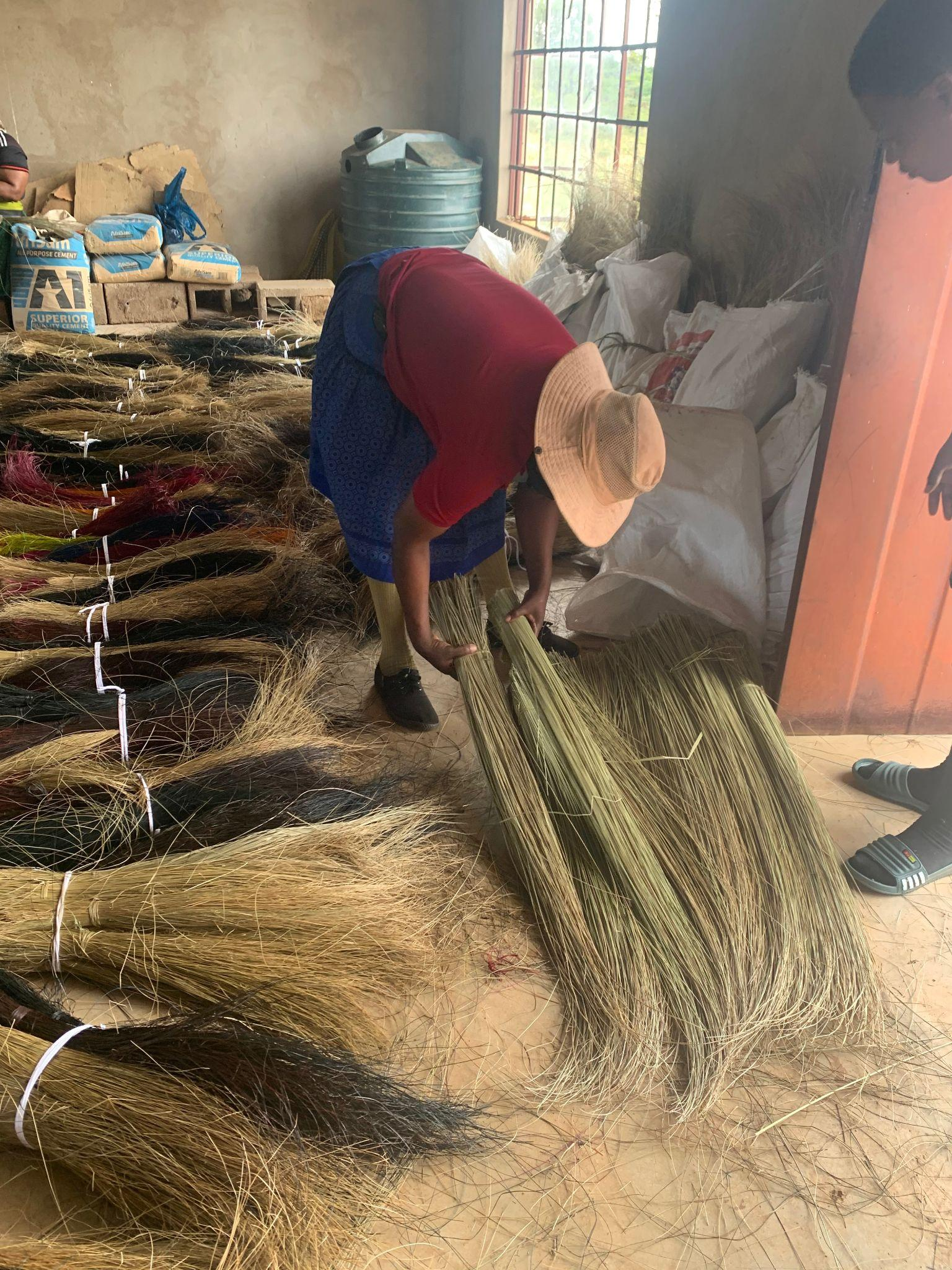
Photo Credit :Nokukhanya Musi – Aimienoho for AWiMNews
Together with her husband who worked temporary jobs and supported her the best way he could, she honed her skills, reared chickens, and saved enough money to start building their family home.
In the face of economic uncertainty and societal pressures, Simangele’s unwavering spirit and entrepreneurial drive led to a flourishing weaving business and the beginnings of a new family home.
She challenges the misconceptions surrounding handicraft businesses and dismisses the prevailing perception held by many young girls and women that prostitution is a viable option.
She urges other young women to pursue their passions and not compromise their dignity.
As Simangele’s story illustrates the power of entrepreneurship, another tale of resilience emerges in the rural community. It is the story of Zodwa Dlamini, a 66-year-old grandmother who has also faced her own share of challenges.
Zodwa’s journey started with the sudden departure of her husband, leaving her to care for their five children as a single parent.
In the face of abandonment, Zodwa turned to basket weaving, a skill also passed down to her by her mother.
The income from weaving allowed her to provide for her children and her craft blossomed into a thriving business.
But Zodwa’s challenges did not end there.
After a long painful ordeal of tending to her sickly child, she eventually discovered that she and her youngest child were living with HIV/AIDS and that she had been infected by her husband.
As Zodwa grappled with the shock and stigma of her diagnosis, she found solace in a community of rural women basketweavers, a safe space where she and other women with HIV/AIDS were supported and empowered.
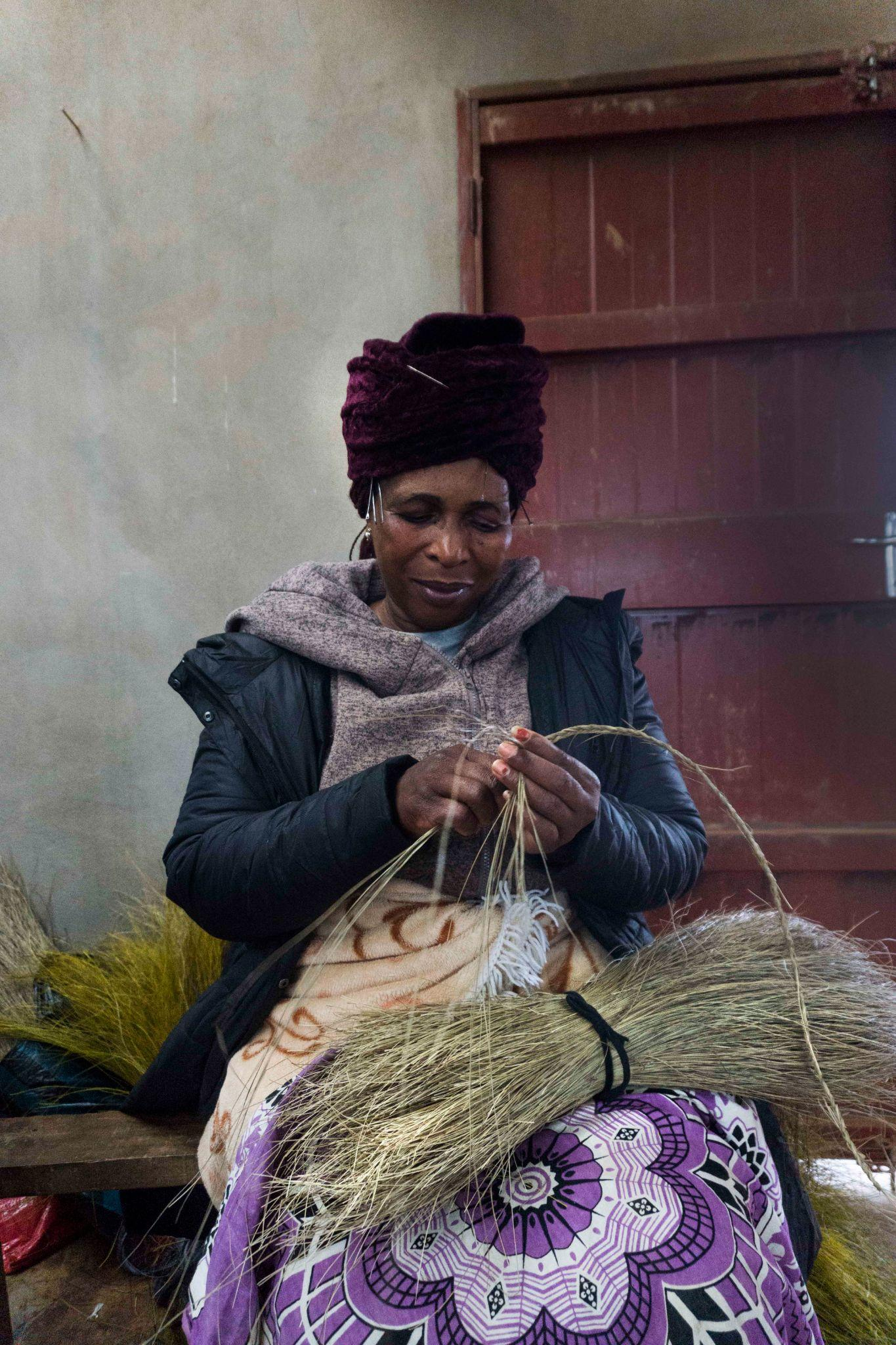
Photo Credit :Nokukhanya Musi – Aimienoho for AWiM News
Through workshops and training, they learned how to manage their health, build sustainable businesses, and break down the barriers of stigma.
Yet, Zodwa’s story is not only about surviving, but also about thriving.
Her courage, resilience, and entrepreneurial spirit have helped her build a life for herself and her children, while also creating a ripple effect of positive change in her community.
Clinical psychologist Celeste Jacobs-Richards explains that financial stress can severely impact mental health, leading to depression, anxiety, and hopelessness.
She has observed that women like those in Gone Rural BoMake who tap into their creative potential and cultural roots can find not only a financial lifeline but also a powerful source of pride and emotional support, fostering resilience and empowerment.
“By transforming their traditional art into merchandise, these women connect with their heritage and create a ripple effect of positivity. This not only improves their mental health by providing a sense of accomplishment and self-sufficiency, but also empowers younger generations to follow in their footsteps, paving the way for a brighter future,’ she explains.
Jacobs – Richards highlights that financial struggles, while debilitating, can serve as a catalyst for self-discovery and growth.
“Creative expression and cultural knowledge hold immense power in overcoming adversity,” she says.
The stories of these women are not just tales of individual triumph, but also a tapestry of resilience and hope in a landscape marred by deep-seated issues.
These stories are of women who were empowered to become talented artisans, breadwinners, and businesswomen to overcome some of the challenges of rural living, enhancing the lives of their families and communities in the process
“The Gone Rural BoMake project, with its focus on art as a vehicle for personal and community transformation, is testament to this concept. By building supportive networks and fostering economic independence, the women in this initiative are breaking the cycle of poverty and anxiety, demonstrating that financial stress can be overcome with resilience, resourcefulness, and the harnessing of their inherent talents.
“These women are charting a course for themselves and their communities, one that values both creativity and cultural heritage,’ Jacobs – Richards concludes.
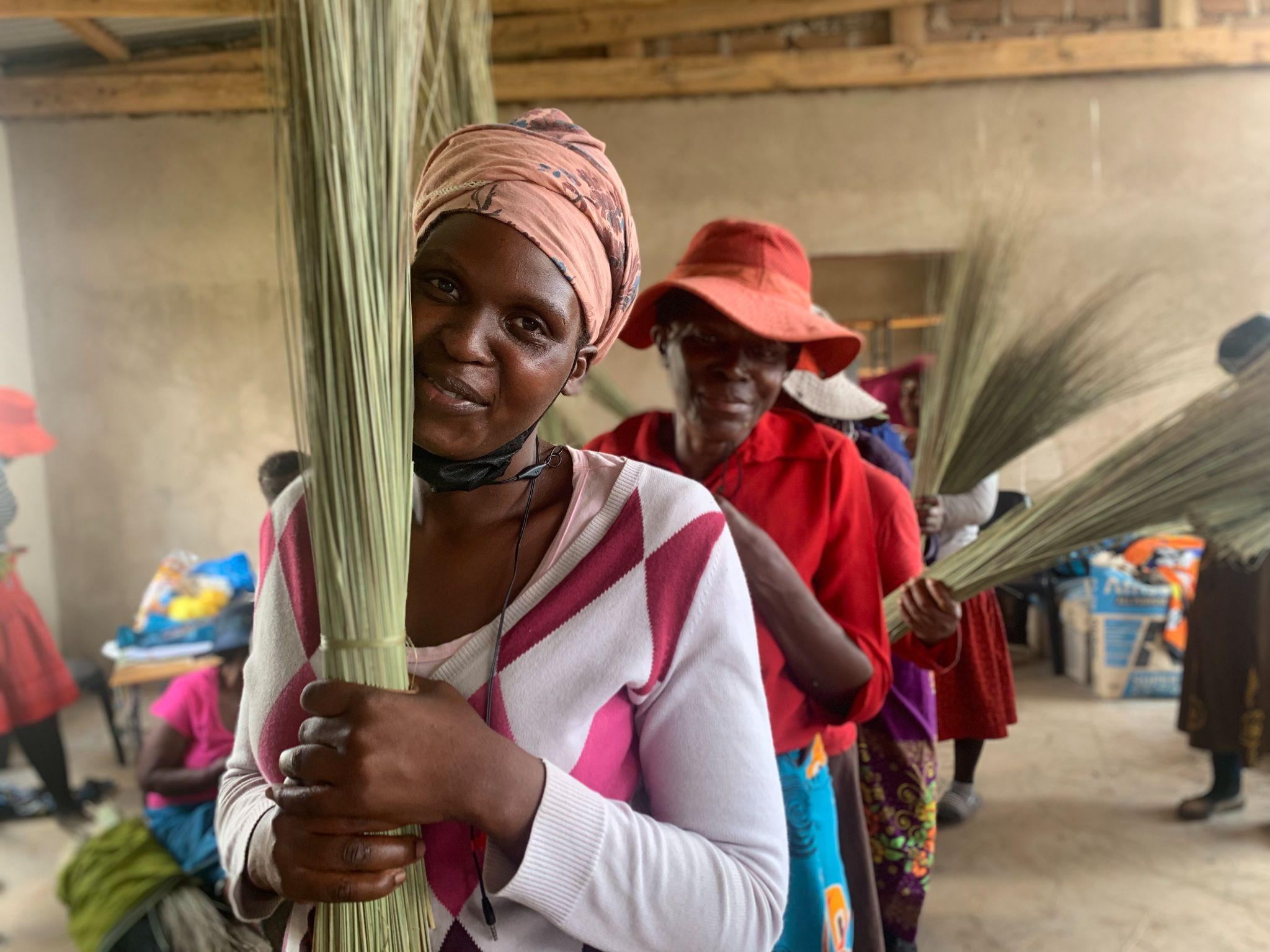
Photo Credit :Nokukhanya Musi – Aimienoho for AWiMNews
Amidst the struggles and triumphs of these resilient women, there is a unifying force that binds their stories together: Gone Rural BoMake, an initiative that has brought ancient weaving techniques into the modern era, imbuing them with newfound value in international markets.
The global demand for Gone Rural’s innovative products, which combine ancient weaving techniques with modern designs, has opened new doors for these women.
Their baskets and textiles, infused with traditional Swazi heritage, are now sought after by international retailers and consumers alike, from high-end boutiques in Europe to eco-friendly shops in the United States.
Gone Rural has helped these women not just to survive, but to thrive, while also preserving their culture for future generations.
Since its inception in 1992, Gone Rural has supported over 780 artisans across 13 remote communities, providing sustainable income and education opportunities to women in need.
What started as a single thread of hope has now woven a web of change, radiating out from the remote hills of Eswatini to the global marketplaces that covet these unique, handcrafted pieces.
The reach of Gone Rural’s impact extends far beyond the borders of Eswatini. In rural communities across the country, women are discovering their own voices and carving out new paths.
Their success is not just financial, but also deeply personal—the result of finding their own strength and forging their own futures.
Through Gone Rural, these women are redefining what it means to be a woman in Eswatini, shattering traditional notions of gender roles and making their mark on the world.
Community development expert and Fair Trade Operations Manager Jeanine Bello notes that the success of Gone Rural’s artisans is a testament to their resilience and determination, but it also speaks to the impact of the organization as a whole.
She says by fostering entrepreneurship and preserving traditional weaving techniques, Gone Rural is creating a cultural legacy that will endure for generations to come.
“The positive impact of Gone Rural’s work in rural Eswatini communities is undeniable. Over time, the organization has steadily grown, not only providing women with sustainable livelihoods, but also creating a ripple effect of positive change for them and their communities. From humble beginnings, Gone Rural has become a beacon of hope and a catalyst for transformation,” she points out.
Nestled in the rolling hills of Eswatini, Kalamgabhi is a rural community that has long struggled with poverty and limited economic opportunities.
But with Gone Rural’s support, the women of Kalamgabhi are finding a new source of pride and prosperity.
Sozabile Dlamini, a respected community leader from Kalamgabhi, explains the transformative impact of Gone Rural.
“It can be a struggle to find work in our community, but Gone Rural has created a pathway for women to earn a steady income and support their families. Gone Rural is more than just a business; it is a source of pride and hope, a lifeline in a community where opportunities are few and far between,” he says.
The traditional division of labor in rural communities, where men migrate to cities for work while women remain at home, is being challenged as more women take on the role of sole breadwinners.
Financial advisor, Mandlenkosi Dlamini says, “The informal sector has always been a major contributor to Eswatini’s economy, providing both income and employment to many. However, the recent downturn in the formal economy has exacerbated the difficulties faced by these workers. Inflation, currency depreciation, and low consumer confidence have severely impacted their earnings.”
He mentions that it is therefore crucial to consider targeted assistance for these micro and small businesses, perhaps in the form of tax breaks, affordable credit facilities, and skills training, to ensure that they can weather challenging periods and continue to play a significant role in the country’s economic recovery.
He addresses the importance of traditional crafts in Eswatini, saying, “Besides the informal sector, we must also recognize the value of local craft, which not only embodies the rich cultural heritage of Eswatini but also provides an opportunity for economic growth. As an example, the sales of traditional baskets and weaving products generated over $1.2 million in revenue in 2019.The government and private sector must explore ways to promote these traditional arts and crafts, perhaps through marketing campaigns targeting tourists or subsidies for raw materials and equipment.”
Moreover, he says that the vital role of women in Eswatini’s economic landscape cannot be ignored

Photo Credit :Nokukhanya Musi – Aimienoho for AWiMNews
According to recent data by the UN, women make up nearly half of the informal sector workforce and play a crucial role in household income generation. It is estimated that women represent 48 per cent of the 281 million international migrants.’’Despite limited disaggregated data on remittances, gender inequalities in the labour market, and gender wage gaps globally, Women migrant workers remit substantial portions of their earnings, sending as much or even more than men’’
Efforts to support informal traders and promote traditional crafts must therefore include a gendered lens, ensuring that women have equal access to opportunities and resources. For instance, providing women with access to microfinance services and financial literacy training could significantly enhance their entrepreneurial potential
“More and more women are staying in their villages and starting their own businesses. They are raising their children, tending their fields, and earning their own incomes. They are proving that a woman can be both a mother and a business owner. She can be a provider and a nurturer,’ Gogo Simelane says.
And so, as these women weave their baskets, they also weave a tapestry of hope, resilience, and cultural pride.
Theirs is a story of transformation, of breaking down barriers, and of creating a better future for themselves and their communities.
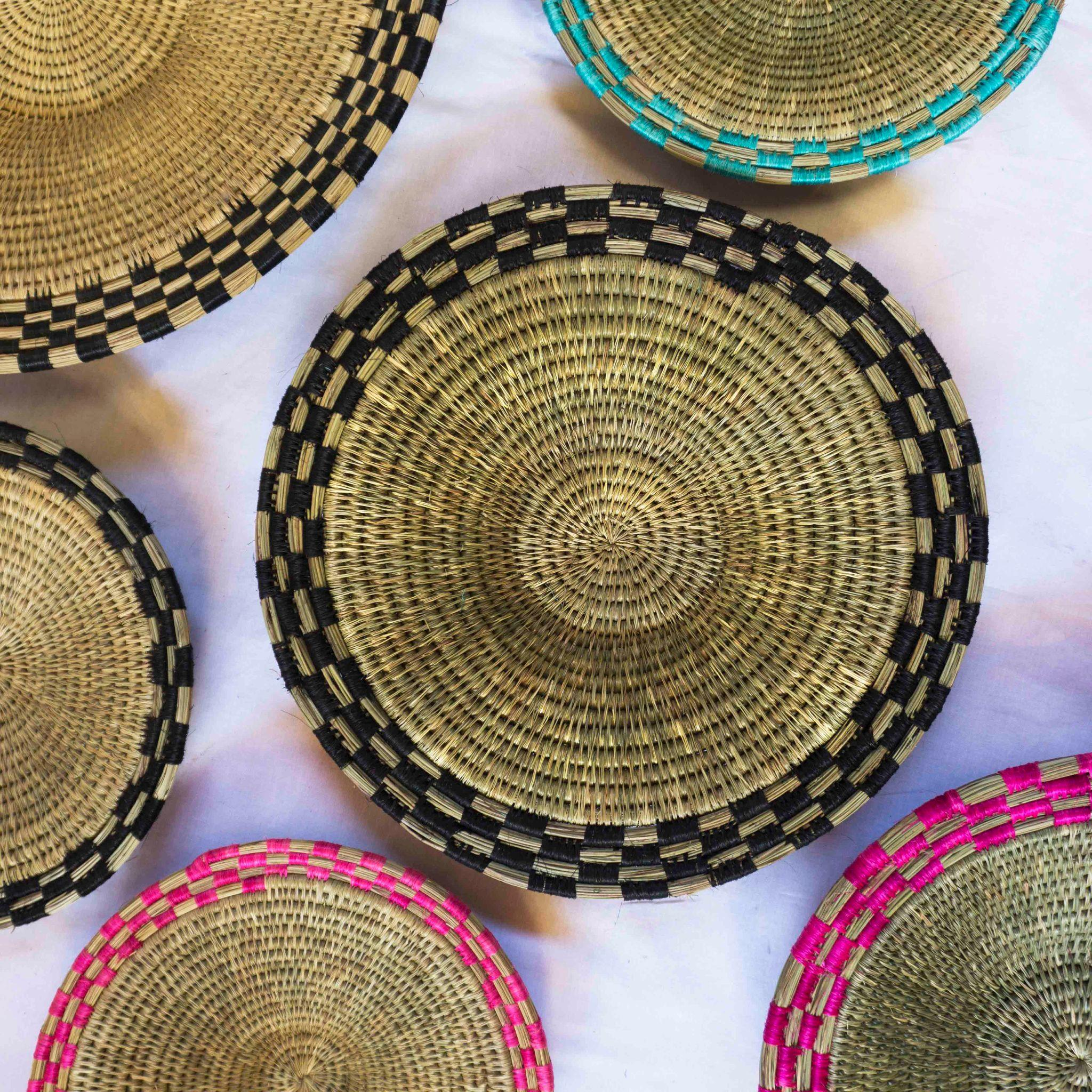
Photo Credit :Nokukhanya Musi – Aimienoho for AWiMNews
It is a story that speaks to the power of inclusion, of empowerment, and of what is possible when women are given the tools and resources they need to succeed.
Their stories are a testament to the power of women to create positive change, to shatter stereotypes, and to build a brighter future for themselves, their communities, and their country.
Editor’s Note: The names of the survivors have been altered in this report for their security.
“African Women in Media’s Gender Stories Editorial Fellowship, supported by Fojo Media Institute”
We’re not gonna spam. We’ll try at least.

Copyright 2020. African Women In Media